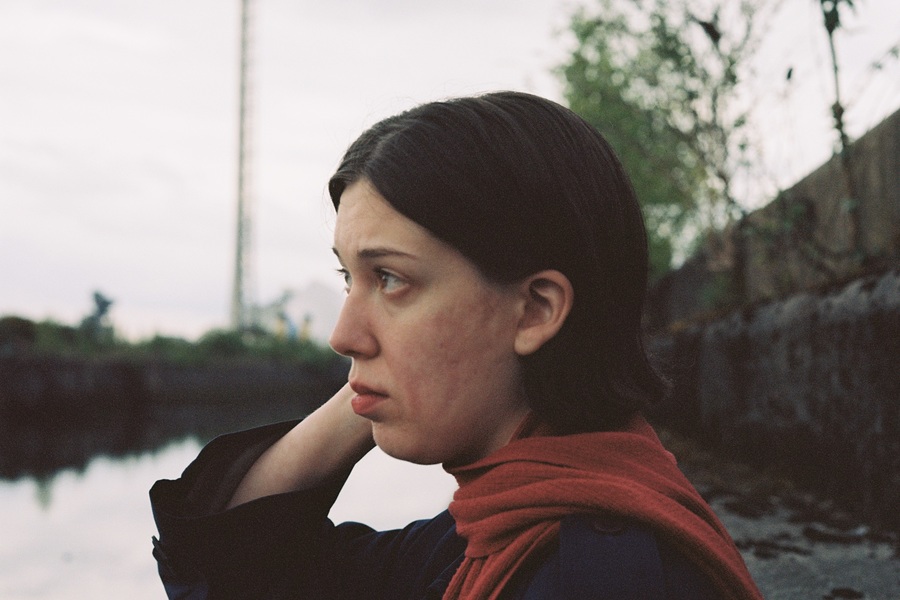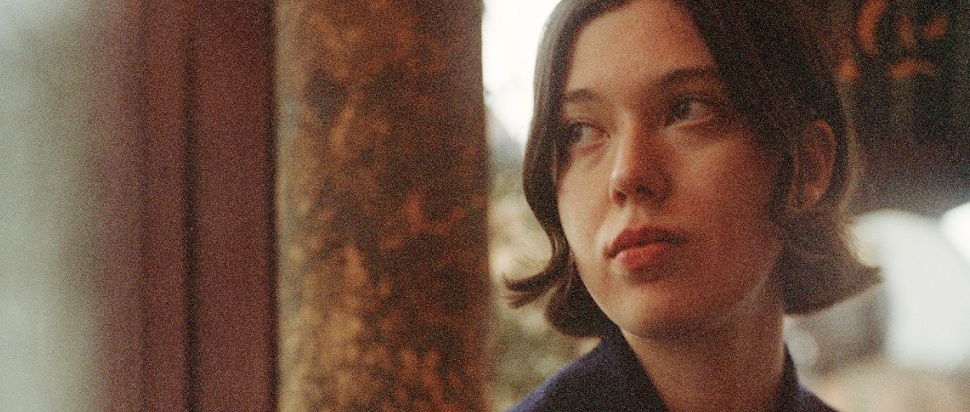Spotlight On... Alice Faye
Following the release of her latest single Nowhere To Go, and ahead of her forthcoming EP, we shine a spotlight on singer-songwriter and musician Alice Faye
Alice Faye has one of those rare, super-commanding voices. In the same way that Martha Wainwright, Angel Olsen or Aldous Harding can make you stop what you're doing as you hang on their every word, so too can this wildly talented individual from Glasgow. Following the release of her latest single Nowhere To Go, the lead from her forthcoming piano-led EP Deadbeat, we catch up with Faye and get to know her a little better.
You have a sound far beyond your years, which I know sounds a bit cliched to say, but you really do sound like you’re from another time. Who or what inspires your music, and how did you get into songwriting?
Oh wow, thank you so much, that’s very kind of you to say! I wouldn’t be sure exactly what brought me into songwriting, I’ve just always loved doing it, even when I was terrible at it. During my adolescent battle with songwriting I decided I wanted to write similarly to Bowie’s album Hunky Dory, and as soon as I got anywhere near to that sound I’ve never been able to stop. I really love the craft.
When it comes to what inspires me, I’d definitely say a lot of artists from the 1930s and 50s, so I’m very happy that’s how it comes across. Judy Garland and Edith Piaf would be some of my main influences vocally, as well as a cheeky dash of Roy Orbison. And songwriting-wise, I’ve always felt very attached to more modern artists like Rufus Wainwright and ABBA, since I listened to them from quite young. I’ve always loved their theatricality and unnecessary drama. It’s just so fabulously camp. Someone not replying to your call should require a full orchestra’s response, that’s how I see it!
For your latest single, and forthcoming EP, you’ve stepped back from the guitar to create an emotion-packed piano-led collection, described as a “new chapter” for you. What’s your reason for releasing an EP revolving around the piano?
Well, in a funny way I’d say my piano EP really refers to the “oldest chapter” of my songwriting. Piano was actually the first instrument I learnt and began writing with. I sort of view my piano songs as the true heart to my songwriting; I actually only started playing the guitar over lockdown, so all of my guitar tunes feel pretty fresh to me. I almost feel as though I put on a bit of a character when I play them, whereas my piano songs have always felt much more sincere.
Don’t get me wrong, I love writing with the guitar, and a lot of my guitar tunes can feel quite revealing, but my piano songs almost feel like my weird little babies. I’ve been afraid of them having a life of their own, in case people are mean to them or something like that. But I suppose I must be ready for them to be out now and my releasing of these piano tunes is the marking of my confidence in that side of myself, musically. So that’s how this EP feels both like an old and a new chapter for me.
You released the stunning lead single from the EP, Nowhere To Go, last week. In the press release it states that the song “offers a shared understanding of the universal experience of suffering between father and daughter.” It’s poignant that you released this just before Father’s Day. If you feel able to, can you tell us more about the inspiration for the song?
That’s so interesting, I actually hadn’t realised I released it [just] before Father’s Day, though it is bizarrely fitting. The song sort of talks about lots of different feelings within a family. In my mind, it’s about each family members’ different perspective on life and death and marriage and divorce. My father was ill when I wrote this song and though I didn’t want to recognise it at the time, my feelings of anxiousness about that were definitely prevalent within most of my songs at the time.
My Dad would listen to one or two songs around the time, I remember particularly one called Shoulder Charge by Jesca Hoop. It seemed her lyrics really depicted how he felt, suddenly getting ill. I think on some level I wanted to write a song for him that gave him the same feeling; he would listen to that song so euphorically and I wanted to recreate that feeling for him in my own way. So the main perspectives of this song became mine and what I interpreted as my father’s perspective on his illness. It’s one of his favourite songs of mine now. I also wrote it right at the start of lockdown, so I suppose there’s a bit of that general loneliness we were all feeling within it, dejected and aimless but somewhat hopeful. Overall, I think it’s a song about feeling lost and needing love.
The EP takes its name from a lyric in Nowhere To Go. Why did you decide to call the EP Deadbeat? And can you tell us more about the rest of the EP?
It was actually my boyfriend’s idea to call the EP Deadbeat and I thought it was a great suggestion. The word manages to be both be self-deprecating and strong at the same time, maybe because of its onomatopoeic quality. I really loved the idea of releasing a collection of songs with a title that pre-emptively critiqued my songwriting persona. I imagine a ‘deadbeat’ being a sort of self-indulgent beatnik, ever so slightly like Snufkin from The Moomins. I wanted to capture a sense of drama, some urbanity and a bit of country. A country singer could call themselves a ‘deadbeat’, but so could a city-dwelling beatnik, and I liked that combination of meanings for my music.
There are two other tracks and an Outro on the EP and they all sort of revolve around the theme of being a ‘deadbeat’. The next one that’ll be out is called Better Not, and it’s essentially about being an avoidant person, someone who puts off healthy things in order to continue down a path of self-destructiveness. The other one is called Slice of Me, which is a song about unrequited love, but a love for someone whom you know you don’t even really like anyway. I feel each song has a shared sense of self-destructiveness and masochism, and I think the word ‘deadbeat’ encapsulates these themes quite nicely. As nicely as one can encapsulate those themes anyway, haha!

Image: Alice Faye by Delilah Rose Niel
You’re fresh from playing both the Eden and Solas festivals, and you’re opening The Skinny’s stage at Kelburn on Sunday 2 July. What can we expect on the day?
I can’t wait! You can definitely expect the songs from my EP, as I’ll be bringing my flashy new white keyboard along for the occasion! Other than that you should expect some terrible comedy in-between each song, and an overwhelming use of the sustain pedal and 3/4 time signature.
What does the rest of the year look like for you?
Hopefully gigs! I have a headline gig in Mono, Glasgow on 8 September and I’ll be embarking on my first UK tour in October this year; a huge thanks going to the fabulous Philip Seth Campbell for taking me along for the ride as his support. And this summer I’m planning an album, which I hope to record with my band later this year.
Alice Faye plays The Skinny's Pyramid Stage @ Kelburn Garden Party, Kelburn Castle, nr. Largs, 2 Jul, and Mono, Glasgow, 8 Sep; Nowhere To Go is out now; Deadbeat is released on 28 Jul
instagram.com/alicefayemusic
linktr.ee/alicefayemusic
